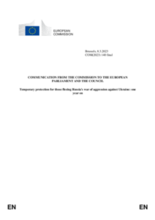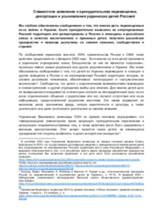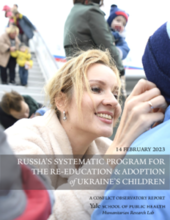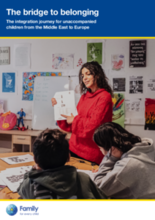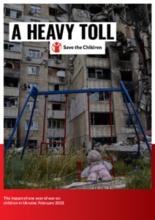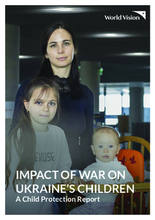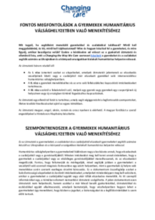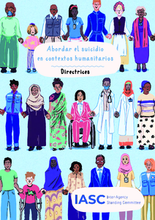Displaying 91 - 100 of 532
This Communication takes stock of the Temporary Protection Directive implemented on 4 March 2022 over the course of one year. It provides insight into how the EU managed to enable and coordinate a response to the largest displacement on European soil since the Second World War.
Принудительное перемещение, депортация и усыновление детей из Украины, призводящее к окончательному разлучению детей с их семьями, сообществами и культурой, является явным нарушением их прав человека и международного гуманитарного права и пр
Alexander is one of many Ukrainian teenagers who fled to Moldova unaccompanied. Thanks to the partnership between border police, child protection specialists working with UNICEF and local authorities, he was identified and integrated into a foster family from Causeni. Since the onset of the conflict, one of UNICEF's biggest priorities has been to protect children from abuse or trafficking.
At its resumed eleventh emergency special session, the world body adopted a new resolution calling for an end to the war, only hours before the conflict enters its second year on Friday, 24 February 2023.
This report published by the Yale School of Public Health’s Humanitarian Research Lab (HRL) documents the relocation by Russia of at least 6,000 children from Ukraine to a network of re-education and adoption facilities in Russia-occupied Crimea and mainland Russia.
This report examines what happens after unaccompanied children have arrived at their European destinations and is based on interviews with key informants, a literature review, and research in three sites (Lebanon, Greece and Germany). What does it mean to integrate into a new society when you are a child on your own? How do they face the challenges of building an identity without their families, process the violence and dangers of their journeys, and face a new situation that may not be as welcoming or straightforward as they had expected?
The dramatic escalation of war in Ukraine in February 2022 has affected every person in the country.
Since 24 February, 7.5 million children from Ukraine1 have been victims of the largest human displacement crisis in the world today, with lasting consequences for generations to come.
Ezt az útmutatót azoknak a szolgáltatóknak állítottuk össze, akik gyermekekkel, családokkal és elszakított gyermekekkel foglalkoznak, válaszul a jelenlegi ukrajnai és környező országok humanitárius helyzetére.
Esta nota de orientación tiene como objetivo ayudar a los implementadores de programas, coordinadores y otros actores humanitarios a abordar el suicidio y las autolesiones en entornos humanitarios. Reúne una amplia gama de enfoques, herramientas, materiales de referencia y ejemplos de casos. Es un recurso práctico y conciso aplicable a todo tipo de emergencias, organizaciones y sectores.

